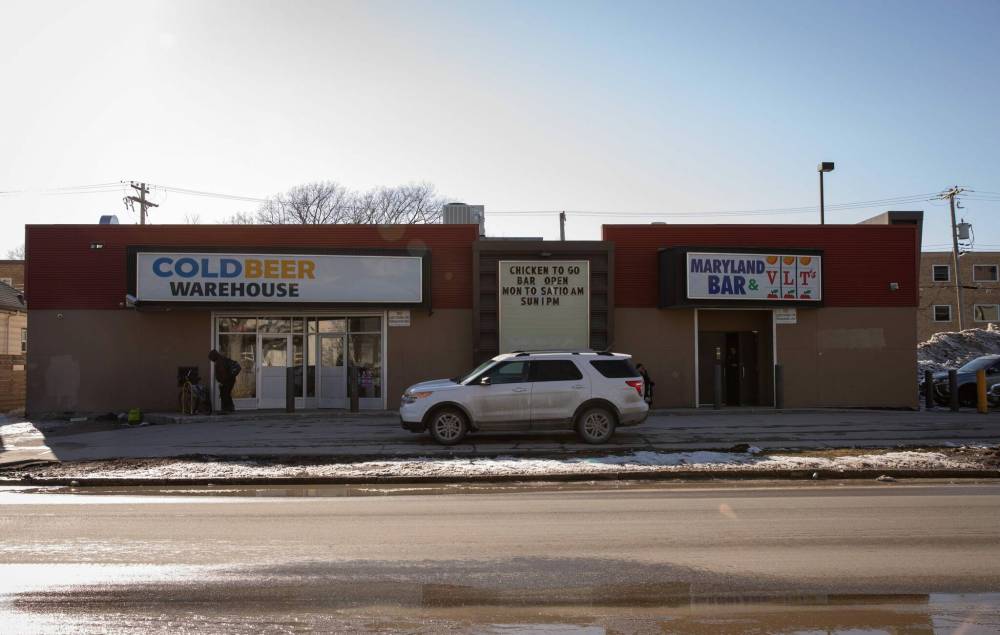Seven years for ‘life-altering’ hammer attack
Advertisement
Read this article for free:
or
Already have an account? Log in here »
To continue reading, please subscribe:
Monthly Digital Subscription
$0 for the first 4 weeks*
- Enjoy unlimited reading on winnipegfreepress.com
- Read the E-Edition, our digital replica newspaper
- Access News Break, our award-winning app
- Play interactive puzzles
*No charge for 4 weeks then price increases to the regular rate of $19.00 plus GST every four weeks. Offer available to new and qualified returning subscribers only. Cancel any time.
Monthly Digital Subscription
$4.75/week*
- Enjoy unlimited reading on winnipegfreepress.com
- Read the E-Edition, our digital replica newspaper
- Access News Break, our award-winning app
- Play interactive puzzles
*Billed as $19 plus GST every four weeks. Cancel any time.
To continue reading, please subscribe:
Add Free Press access to your Brandon Sun subscription for only an additional
$1 for the first 4 weeks*
*Your next subscription payment will increase by $1.00 and you will be charged $16.99 plus GST for four weeks. After four weeks, your payment will increase to $23.99 plus GST every four weeks.
Read unlimited articles for free today:
or
Already have an account? Log in here »
Hey there, time traveller!
This article was published 01/03/2023 (997 days ago), so information in it may no longer be current.
The man who beat a Good Samaritan nine times in the head with a hammer so forcefully it became lodged in the victim’s skull has been sentenced to seven years in prison.
Jonathan Flett, 21, was originally charged with attempted murder, but was convicted after trial of aggravated assault for a Sept. 1, 2020, attack that severely injured 27-year-old Zachary Fitzsimmons.
“The gravity of Mr. Flett’s conduct and its permanent, life-altering consequences for Mr. Fitzsimmons, cannot be overstated,” King’s Bench Justice Theodor Bock said Wednesday. “The attack was completely unjustified, as was Mr. Flett’s role in it.”

JESSICA LEE / FREE PRESS FILES
The attack on Zachary Fitzsimmons happened at the beer store outside the Maryland Hotel.
Fitzsimmons testified at trial he had been “hanging out” and drinking with his fiancée and friends when they drove to the Maryland Hotel to pick up more beer before going home.
Fitzsimmons said he was approaching the beer vendor entrance when he saw “a group of guys messing around with this younger kid… They were circled round him. I could sense something was going to happen. They were bullying him.”
Several bystanders were walking in the area but did nothing to assist the boy, he said.
“I came up (to the group) and said: ‘Leave that kid alone,’” he said. “They didn’t like that. They got up in my face and said: ‘What are you going to do?’ I felt like I was going to be the one they were fighting, that’s how close they were to my face.”
Fitzsimmons said he may have thrown the first punch in self-defence and found himself fighting two of the men, while a third struck him on the head several times with a retractable baton.
“Everything flashed white” and the next thing he remembered was waking up in hospital with his fiancée, feeling “very confused,” Fitzsimmons said.
Fitzsimmons did not testify to being hit with a hammer, but security video of the attack shows Flett striking Fitzsimmons nine times with a drywall hammer, at one point lodging the tool in his skull.
Fitzsimmons suffered a broken jaw, a shattered nose and injuries to his skull, and spent three weeks in hospital. He continues to suffer from memory loss, cognitive impairment and damage to his eyesight.
“It is fair to say that Mr. Flett has deeply and irrevocably damaged not only Mr. Fitzsimmons’s life, but the lives of those closest to him,” Bock said.
Flett, who is cognitively challenged and was impaired by alcohol at the time of the attack, had agreed at the start of trial to plead guilty to the lesser offence of aggravated assault — but the Crown didn’t accept the plea.
Bock acquitted Flett of attempted murder, ruling last June that Flett’s personal circumstances and circumstances of the attack could not support a finding he had the intent to kill.
Court has heard Flett’s childhood was rife with family violence and, at 13, he was initiated into a gang with a beating that left him blind in one eye. His mental disabilities include post-traumatic stress disorder and an inability to concentrate or process information quickly, his lawyer, Scott Newman, previously told court.
The maximum sentence for aggravated assault is 14 years in prison. Prosecutors had recommended Flett be sentenced to 10 years in prison.
“On the evidence before me, there is no question that Mr. Flett’s brain — the instrument on which he relies to control himself, to make responsible decisions and to avoid hurting people — is damaged,” Bock said Wednesday.
“My restraint in (not imposing a 10-year sentence) is prompted by Mr. Flett’s youth and the fact this is his first and, hopefully, only, penitentiary sentence.”
dean.pritchard@freepress.mb.ca

Dean Pritchard is courts reporter for the Free Press. He has covered the justice system since 1999, working for the Brandon Sun and Winnipeg Sun before joining the Free Press in 2019. Read more about Dean.
Every piece of reporting Dean produces is reviewed by an editing team before it is posted online or published in print — part of the Free Press‘s tradition, since 1872, of producing reliable independent journalism. Read more about Free Press’s history and mandate, and learn how our newsroom operates.
Our newsroom depends on a growing audience of readers to power our journalism. If you are not a paid reader, please consider becoming a subscriber.
Our newsroom depends on its audience of readers to power our journalism. Thank you for your support.
History
Updated on Wednesday, March 1, 2023 6:55 PM CST: Name of judge fixed.




